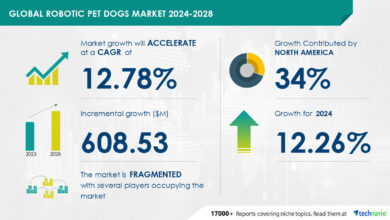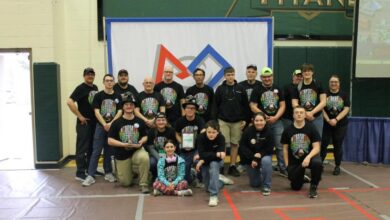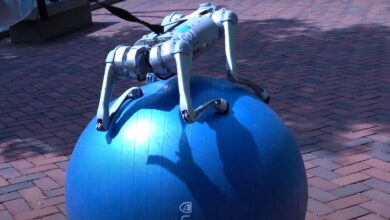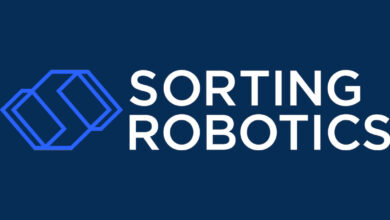Robots are rising in Europe
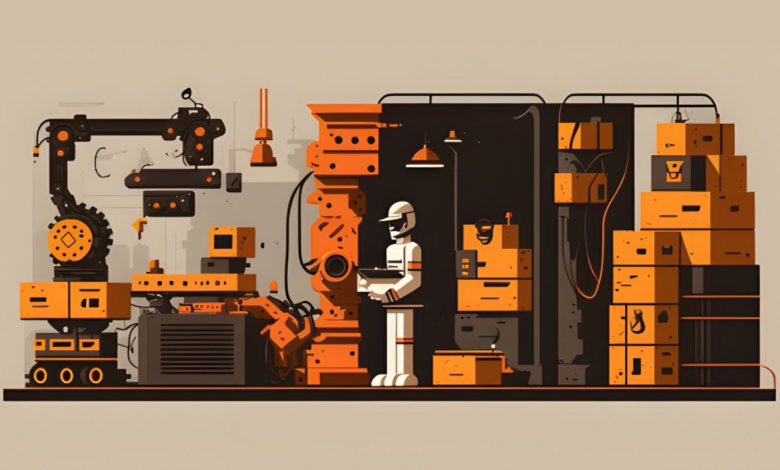
This article first appeared in Sifted’s Daily newsletter, sign up here.
2024 has felt more science and less fiction, with investor money flowing into everything from AI-powered robots running automated assembly lines to humanoid machines helping with daily tasks.
In Europe, where industrial and manufacturing industries play a key role in many local economies, these AI-supported robots are catching the eye of top investors. German robotics startup RobCo, which makes automated robots for small and mid-sized manufacturers, raised Series A funding from US powerhouse Sequoia Capital in 2022, and earlier this year raised a fresh $43m Series B from fellow American VC Lightspeed Venture Partners; OpenAI-backed Norwegian startup 1X, which makes humanoid robots, raised a whopping $100m in Series B funding in January led by EQT Ventures.
Other robotics startups working in different areas like construction have recently raised earlier-stage funding, including Dutch bricklaying robot startup Monumental’s $25m February round and home building startup Automated Architecture’s £2.6m fundraise last month.
Funding has held up relatively well across the whole robotics sector; a little over $2bn was invested in 2023, compared to about $2.4bn in 2022 and over $2.5bn in frenzied 2021, according to Dealroom data analysed by Sifted.
“Investor interest now is at the peak in robotics,” especially amid the AI frenzy, Péter Fankhauser, CEO and cofounder of Zurich-based ANYbotics, which is building four-legged autonomous robots for industrial inspection, tells me. His startup, which caters to companies like chemical manufacturers and oil companies, raised $50m in Series B funding last May from Walden Catalyst and NGP Capital.
To be sure, robotics companies have been around for decades. But “it wasn’t always as hot” for generalist VCs as it is now, says Christian Noske, a partner at NGP Capital (and an ANYbotics investor) who says he’s been investing in industrial tech for 12 years. Noske says he’s busier now than in the last 12 months, and is currently closing three deals. “It’s much more competition,” he says.
According to Roman Hölzl, who cofounded RobCo in Munich in 2020, the sector has been increasingly lively in the last 18 months. “You’ve seen the YC request list; out of the 20 topics, like, 10-plus topics have been around deeptech, energy, robotics, automation, industrials, climate,” he says, referring to US startup accelerator Y Combinator’s call for startup ideas. “I think that’s kind of reflective of the overall trend we’re seeing when it comes to the market of talent [and] startups.”
Adoption of robotics has been both a long time coming, and swift. “Companies have a C-level mandate on robotics. They have budgets for it,” says Fankhauser, who started his company in 2016. He adds that US-based competitors like Boston Dynamics have helped push robots into mainstream awareness. Meanwhile, Hölzl tells me RobCo has been more than tripling its revenue year over year. He declined to provide specifics, but coyly admits it’s “maybe” in the ballpark of a recent Forbes estimate citing nearly $10m. Others like French warehouse robotics company Exotec recently announced $1bn in sales.
There’s a handful of reasons for the surge in adoption.
Among them, says Hölzl, is the shortage of skilled workers for manufacturing jobs. “That’s only going to accelerate even further,” he says, as more people reach retirement age. Another big factor is the attention on supply chains and globalisation post-pandemic: “We’re seeing a trend towards more local manufacturing. That’s been pitched for many years, but I think it’s much stronger now than it was ever before,” argues Hölzl.
Robots have also become cheaper to produce in recent years, Noske points out. The widespread use of GPUs, edge computing and low-code, no-code platforms means that software and compute have become more scalable, he says. At the same time, hardware technology has become cheaper. That’s made it “more approachable,” says Noske.
Another reason, founders like Fankhauser point out, is the advancements in AI now make it more feasible to use cheaper physical parts. He says we can use “worse components, quality wise, but the AI helps us to compensate for that”. The AI and software helps robots “see”, learn how to walk and manoeuvre industrial worksites.
I find the AI element here particularly interesting. Europe has played second fiddle to the US’ AI titans like OpenAI — but it might have an edge when it comes to these more specialised applications. At least, that’s what some investors think. About a year ago, Pawel Chudzinski from Point Nine told me he thinks Europe could have a “natural” upper hand when it comes to applying AI to manufacturing, particularly robots.
Noske generally agrees: embedded software expertise “plus hardware understanding” in Europe “is a perfect combination then to connect that with AI”. However, he points out the region is still largely missing growth capital — those $100m rounds — and momentum like in the US, which he argues still has superior software talent.
I’m curious to hear what you think, readers: where can Europe play to its strengths in industrial tech? Are there exciting European robotics companies I should have on my radar? I’m all ears.
